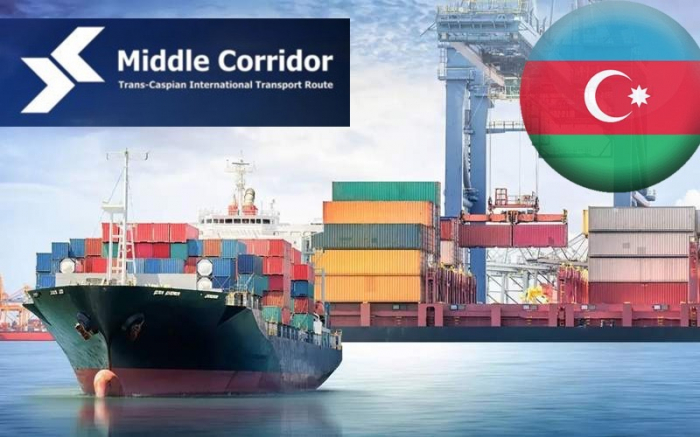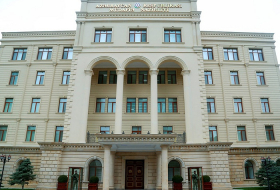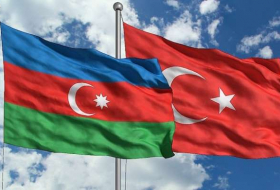Azerbaijan Active Participation in Trans-Caspian International Transport Route (TITR) Framework
By Khalid Taimur Akram
The Trans-Caspian International Transport Route (TITR), commonly known as the Middle Corridor, is witnessing a significant surge in container shipments, marking a transformative shift in global trade dynamics. Recent data from Kazakhstan Railways reveals that container shipments along this crucial trade route have skyrocketed 14-fold in just the first seven months of 2024 compared to 2023, highlighting the corridor's increasing significance and the immense economic potential it offers. This impressive growth reflects not only the strategic importance of the Middle Corridor but also the substantial investment opportunities it presents, particularly in logistics and infrastructure. As the corridor continues to expand, it necessitates ongoing investments in rail networks, ports, and logistical facilities, creating fertile ground for both private and public sector engagement.
Azerbaijan's geographical position as a bridge between Europe and Asia makes it an important player in the success of the TITR. The country has taken a very active role in the development and diversification of energy, transportation, communication lines at the global level and succeeded in realizing important global projects such as Zangezur, Baku-Tbilisi-Kars railway, Baku-Tbilisi-Erzurum natural gas pipeline, Southern Gas Corridor, TANAP, TAP etc. Azerbaijan serves as a vital transit hub for goods moving from China and Central Asia to Europe via the Caspian Sea and the South Caucasus. The TITR is more than just a trade route, it is a strategic corridor that connects Kazakhstan, Azerbaijan, Georgia, and Turkiye, extending its reach into European markets.
As the TITR continues to evolve, Azerbaijan's role in regional connectivity projects such as the East-West and North-South transport corridors becomes increasingly significant. The Middle Corridor, which has been operational since 2014, stands out as the most efficient and secure route for transporting goods between China and Europe. In 2023 alone, approximately 2.8 million tonnes of cargo were transported through the corridor, marking an 86% increase from the previous year. Projections for 2024 suggest that cargo volumes will surpass 4 million tonnes, further cementing the corridor's importance in global logistics.
The country has heavily invested in modernizing its transport and logistics infrastructure to support the increasing flow of goods through this corridor.
Azerbaijan has invested heavily in modernizing its transport and logistics infrastructure to accommodate the increasing flow of goods through the corridor. This surge in container shipments not only reflects improved trade connectivity but also highlights the potential for further economic development and investment in the region. The Middle Corridor's expansion presents significant opportunities for all Eurasian countries which stand to benefit from increased European investment. Such investment can stimulate local industries, create jobs, and promote technological advancements, driving economic growth and development across the region.
Broadening Middle Corridor Linkages
Azerbaijan’s active participation in the development of the TITR is further strengthened by its strategic partnerships, particularly with China's broadening cooperation through Belt and Road Initiative (BRI). The adoption of a joint declaration in July 2023, establishing a strategic partnership between Azerbaijan and China, underscores both nations' commitment to collaborating on the Middle Corridor project. This declaration emphasizes China’s dedication to actively participating in the construction and operation of the TITR, reflecting a shared vision between China and Azerbaijan for the corridor's development.
The ongoing development of maritime infrastructure, particularly in ports like Kurik and Baku, and initiatives like the "Digital Silk Way" project, which aims to transform the region into key international transport and communication hubs, key to the corridor's future success. These projects not only enhance the corridor's capacity and efficiency but also contribute to the broader goal of deepening regional cooperation and fostering economic growth. The Baku-Tbilisi-Kars railway is particularly significant as it provides the most direct rail link between Europe and China. This railway reduces transit times dramatically, enabling goods to reach Europe as two weeks.
As the Middle Corridor continues to grow, it promises substantial economic benefits not only for the countries directly involved but also for the broader global economy. The Middle Corridor provides an alternative to traditional maritime routes, offering shorter transit times and reducing logistical bottlenecks, which in turn enhances trade connectivity among the regional stakeholders.
Under President Aliyev's visionary leadership, Azerbaijan has been effectively implementing sound policies and strategic plans for regional connectivity and alliance building. As global trade dynamics evolve, the Middle Corridor is set to become increasingly vital in facilitating trade between Europe and Asia, driving economic growth, and enhancing regional stability. With ongoing investment and international collaboration, Azerbaijan is well-positioned to capitalize on the corridor's expansion, solidifying its role as a key logistics hub in the Eurasian region.
Mr. Khalid Taimur Akram is an Executive Director, Pakistan Research Center for a Community with Shared Future (PRCCSF), Islamabad.
More about:
















































